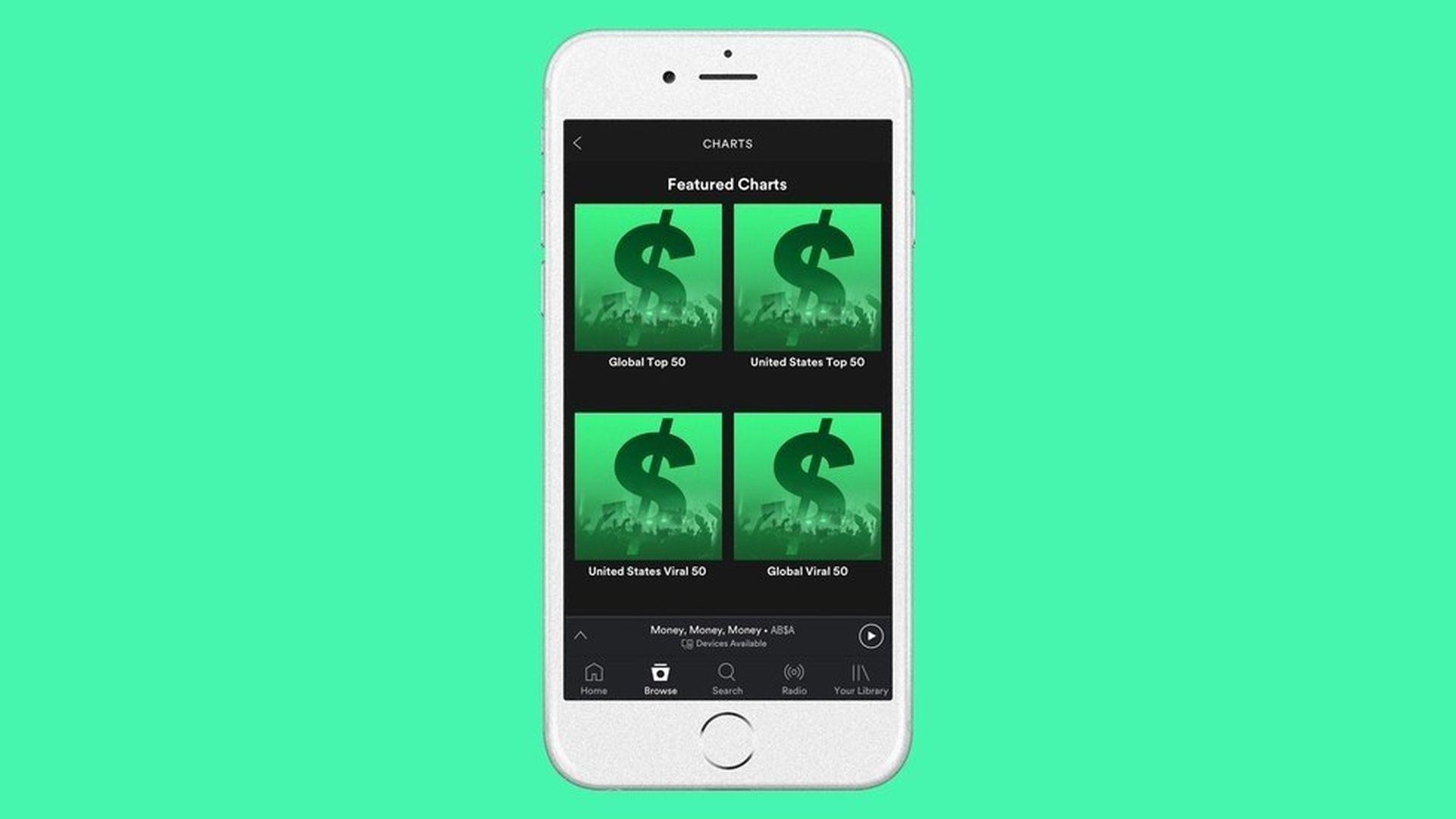Behind the $1.6 billion lawsuit against Spotify
Add Axios as your preferred source to
see more of our stories on Google.

Illustration: Sam Jayne / Axios
On Tuesday, news broke that Wixen Music Publishing is suing Spotify for $1.6 billion for failing to obtain proper royalty licensing. The complaint centers around "mechanical" royalties, an on-going debate in music streaming.
Why it matters: Spotify (and others in the digital streaming industry) has long been criticized for not paying record labels and artists their fair share of the profits. But licensing rules may be due for some updating as online streaming continues to grow in popularity over physical records and musical downloads. Spotify is also in the midst of preparing to go public, as Axios reported.
What are mechanical rights?
- This refers to the copyright of a song's composition, typically owned by the songwriter or a music publisher. The other type of music copyright is for a song's sound recording, usually owned by the record label.
- This is also how the copyrighter controls the reproduction of the song: every time a record company makes a CD, tape, or other record of the song, it has to pay this royalty.
- Anyone can obtain what's called a "compulsory license" without permission to pay out mechanical royalties. This means a person or company can send the copyrights holder a notice of intent, go ahead and play the song and start sending royalty checks without negotiating a deal ahead of time. The first compulsory license was created by Congress in 1909 after the emergence of the player piano to make it easier to play songs. Since then it's been extended to any format of mechanical recording including CDs, tapes, etc.
So what happened?
- Spotify has been inking licensing deals with the record labels and outsourcing the job of managing mechanical rights licenses to the Harry Fox Agency.
- However, there have been disputes over whether HFA and Spotify have properly accounted for all royalties the music streaming company owes, which has resulted in several lawsuits over the last few years. In its lawsuit, Wixen claims that Spotify shouldn't have left the whole responsibility to HFA, and is responsible for the gaps in licensing.
- In May, Spotify proposed a settlement in a similar lawsuit for $43 million, although Wixen says that it's not enough to adequately compensate its songwriters.
What's next: In December, a bill was introduced in the House aimed at simplifying licensing for digital music and increasing royalty payments to rights holders. The bill includes a provision to create a new entity that will handle mechanical rights, collecting royalties from streaming services like Spotify, and paying them out to rights holders, though companies are free to strike their own deals. Those who use the agency will be protected from liability for statutory damages.
